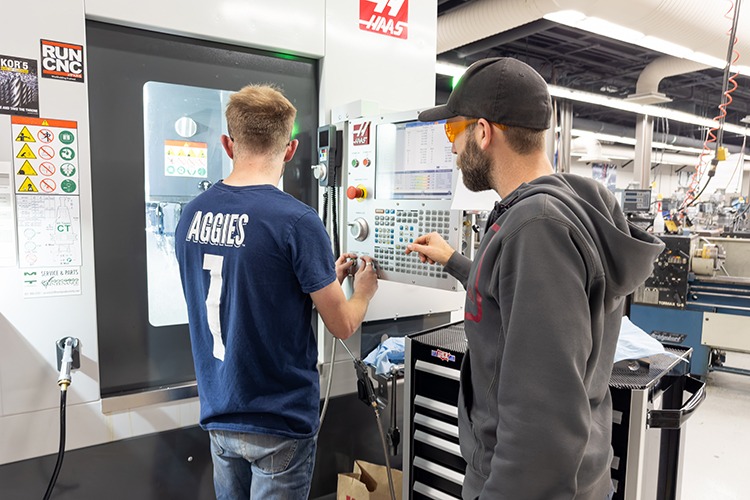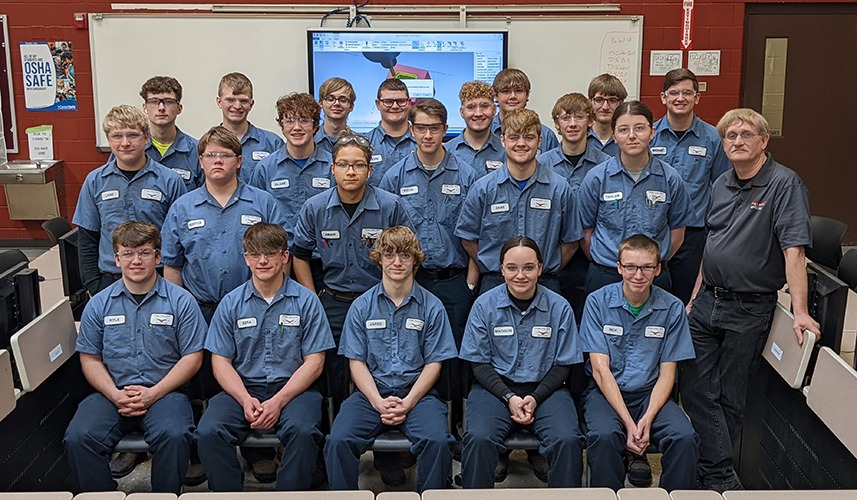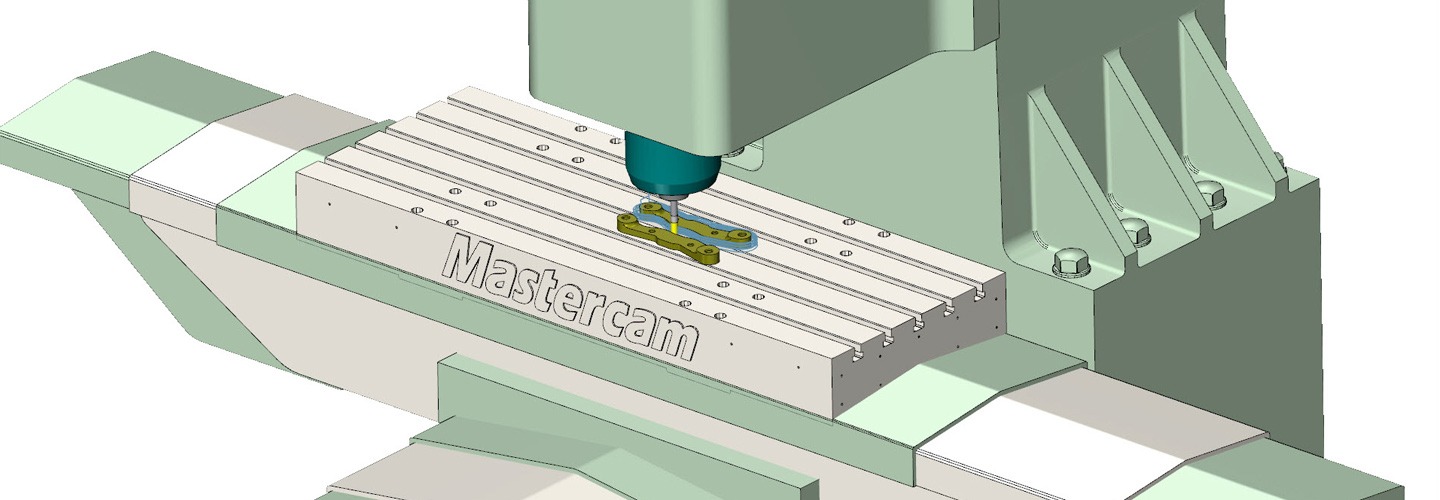
Apprenticeship Program and Manufacturing Exposure Eases Local Skills Gap
Known in the Coconut Creek, Florida, community as ATC, the combined facilities of Atlantic Technical College and Technical High School are using the teaching of Computer-Assisted Design (CAD) and Computer-Assisted Manufacturing (CAM) to propel interested students toward rewarding careers in today’s world of factory automation. Kevin Finan, Instructor in the Machining Technologies Program, has worked in automated manufacturing plants both in Europe and America and brings a host of practical experience to the school.
Quick Facts
- Product Used: Education Suite
- Industry: Education
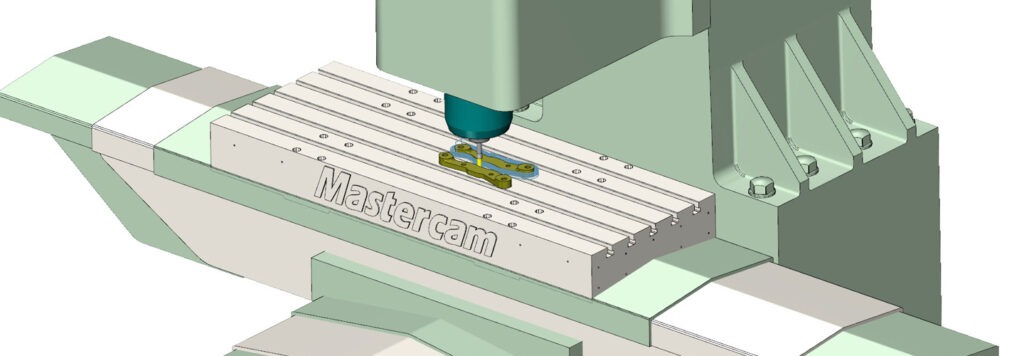
Project Details
- The Challenge: Encourage students to pursue a career in today’s manufacturing industries by attracting them early and then stimulating their interests in developing skills in a CAD/CAM/CNC atmosphere throughout their college courses.
- The Solution: Mastercam
- Benefits:
- Easy to learn and teach
- Stepped in degrees of complexity
- Compatible with today’s advanced machine tools
- Support network always available for assistance
Asheboro, Randolph County, North Carolina is very much like many of the modern, industrial communities found across America. They have a few large manufacturers and a lot of smaller companies and machine shops, all struggling to fill jobs calling for advanced manufacturing skills. They also have a population of citizens eager to find productive, well-paying jobs. The problem, however, is that there hadn’t been an easily accessible on-ramp to the manufacturing career highway. There is one, now, through the auspices of Randolph Community College.
The college is fortunate to have an Advisory Board for an advanced manufacturing program that is comprised of several very active representatives from the area’s shops and plants. They have advised the college for several years regarding the courses and equipment deemed most appropriate for their students as they pursue an associate degree leading to a good job in manufacturing. Because of their input and contributions, the college can boast of a classroom shop that features 9 CNC machining centers and 7 CNC turning centers, along with Mastercam software for students and instructors.
Kicking off what the Advisory Board calls Apprenticeship Randolph, they began working with the school to provide the educational aspect of an apprenticeship program. After a lot of meetings and many, many hours spent hashing out a plan, a pre-apprenticeship class was held over the summer for about two-dozen recent high school graduates. Subjects included industrial safety and a basic introduction to machining.
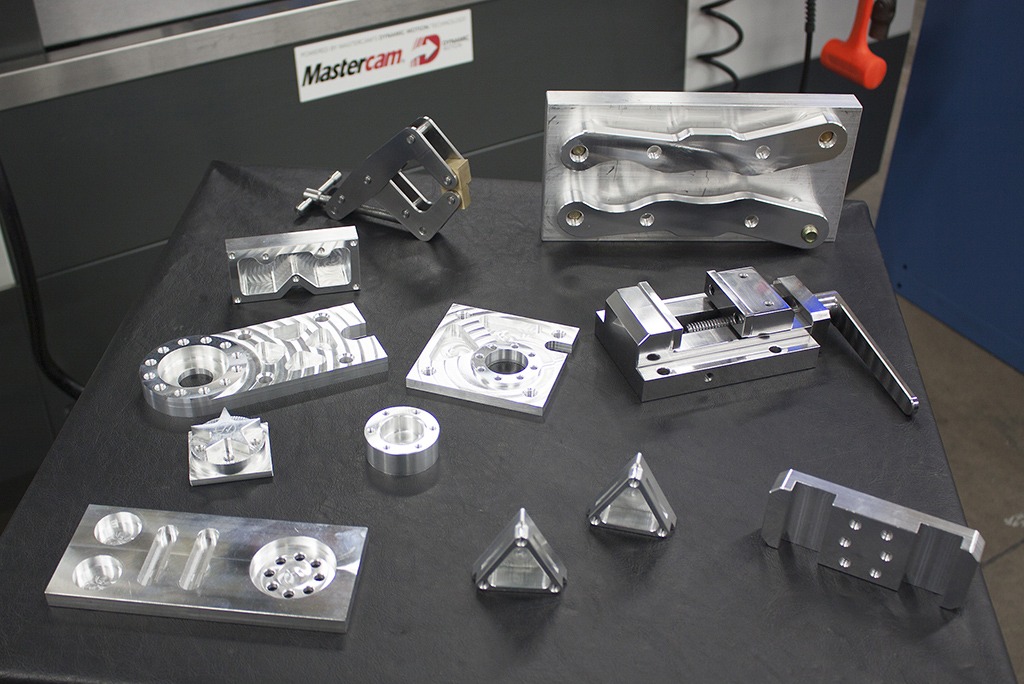
Following this class, seventeen of the students signed on to be full-fledged apprentices. They now go to a selected company first thing in the morning and work until 3:00 or 4:00 in the afternoon, either Monday through Thursday, or Tuesday through Friday, 30-35 hours a week. The other 10 hours, they attend classes on campus at Randolph Community College and take subjects that include Mastercam toolpath programming and CNC machine operation. Courses in advanced manufacturing progress in a building-block manner to assure comprehension before advancing in complexity.
“By partnering with our college, we expect local industry will soon experience an easing of the pressure caused by the headache of the often-heard, Where will we find skilled employees?” shared Garret Parker, Department Head, Computer-Integrated Machining Program at Randolph Community College.
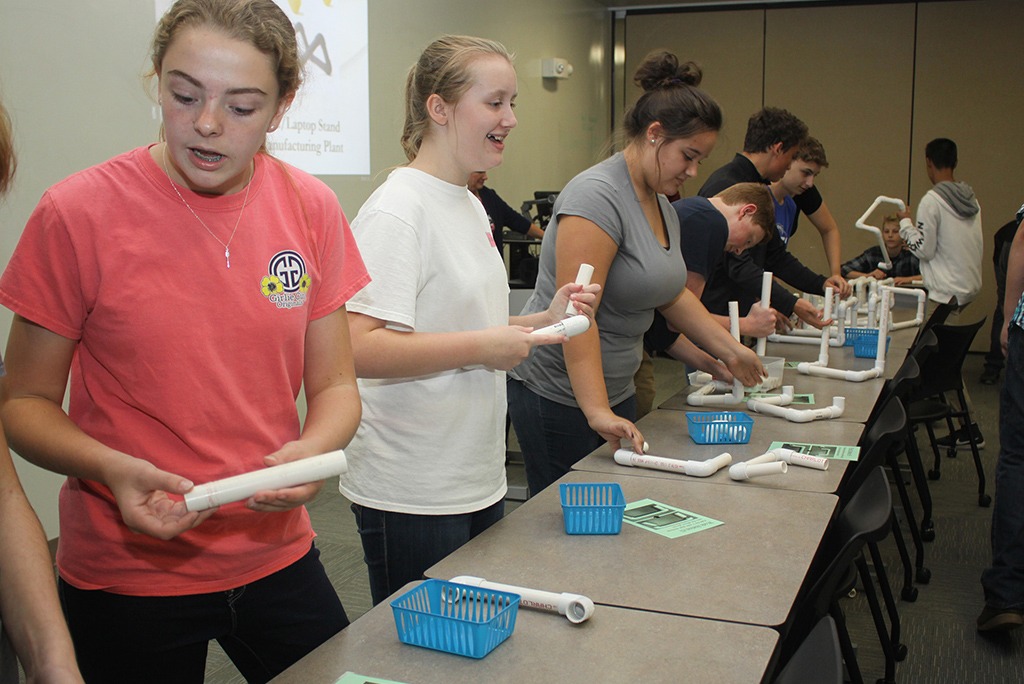
According to Parker, “We’ll start in our CAD/CAM lab with basic 2D drawing and generate some toolpaths in Mastercam, using Machine Simulation to ensure the program is right. The student will take the program to one of our CNC machines, set up the workpiece, and produce the part. The parts I have them produce will require a wide range of operations, including pocket milling, profiling, hole patterns, drilling, tapping, and a combination of most of them. I don’t have them do just one or two pieces. I have them do multiples of several different parts with a variety of features.”
“I equate it to learning math, Parker continues. “I can show them how to do it one time, but it’s when I have them do it over and over that they’re really going to understand the operations. As the students advance, the projects become more complex, such as precision components or mold construction. What they learn in the Mastercam classes, will apply to many other courses in the program that are ahead of them.”
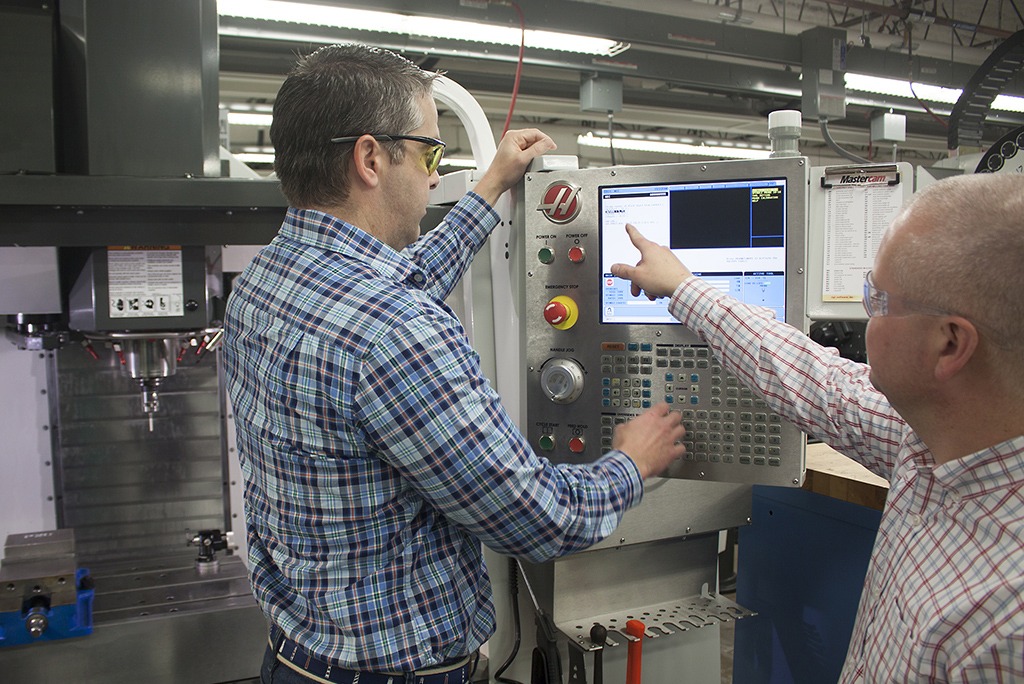
A motivational carrot for sticking with the Apprenticeship Randolph program is that the students are getting paid while they’re on the job and they’re getting paid while they’re in school. Their respective companies are paying for books and tuition. At the end of the program, they will have a Journeyman’s certificate from the North Carolina Department of Labor, as well as an Associate Degree from Randolph Community College. They will also have the benefit of on-the-job experience as a springboard to rewarding careers.
“Also,” says Parker, “we have a Career in College Promise program in North Carolina that, for our Computer-Integrated Machining department, is a machining pathway program whereby junior and senior students can get out of high school early in the afternoon and come to our campus for classes. The classes are free, and students will earn high school and college credits at the same time. Once the student has received a high school diploma, he or she may continue on toward an associate degree.”
Customer Quote
“By partnering with our college, we expect the local industry will soon experience an easing of the pressure caused by the headache of the often-heard, Where will we find skilled employees?”
— Garret Parker, Department Head, Computer-Integrated Machining Program, Randolph Community College
